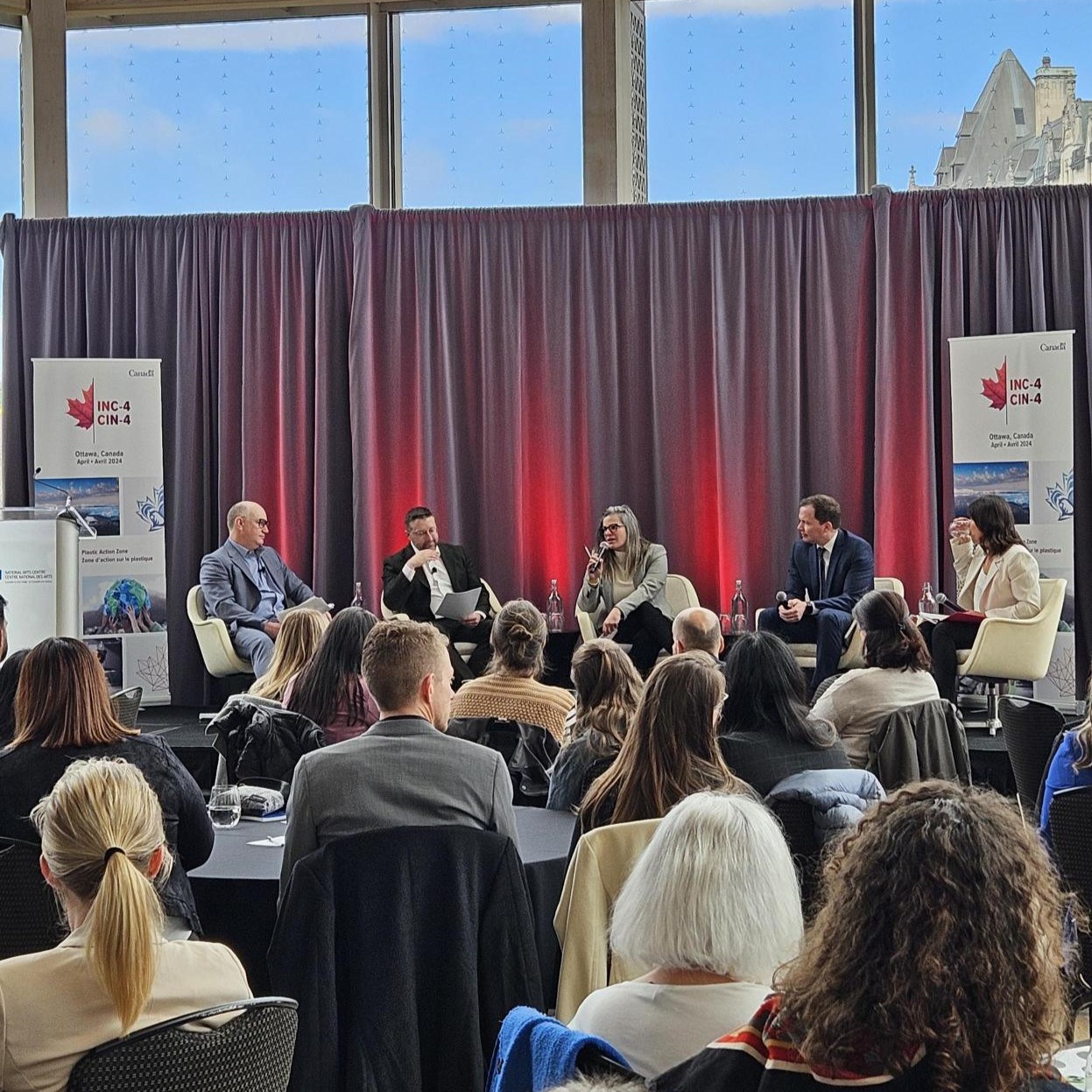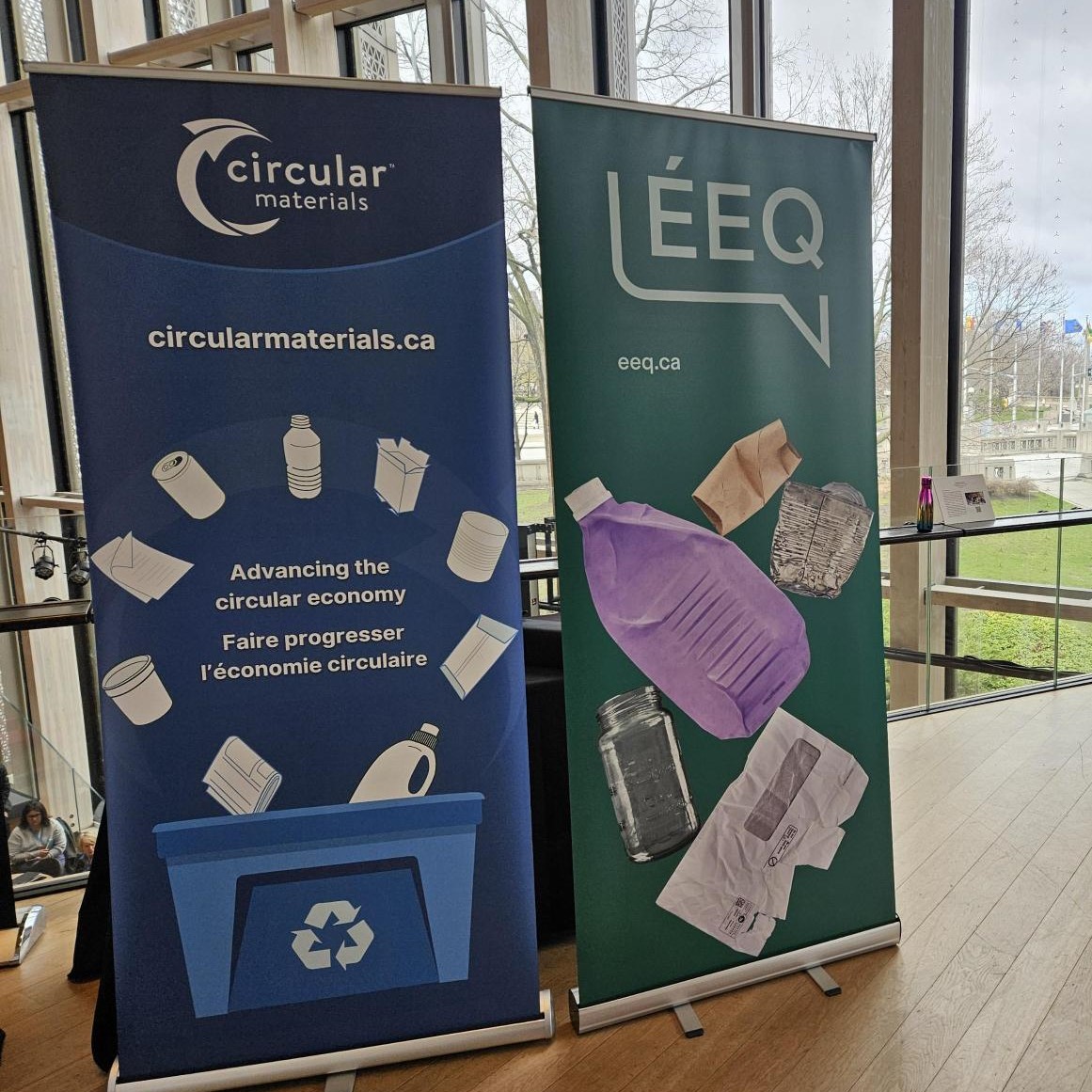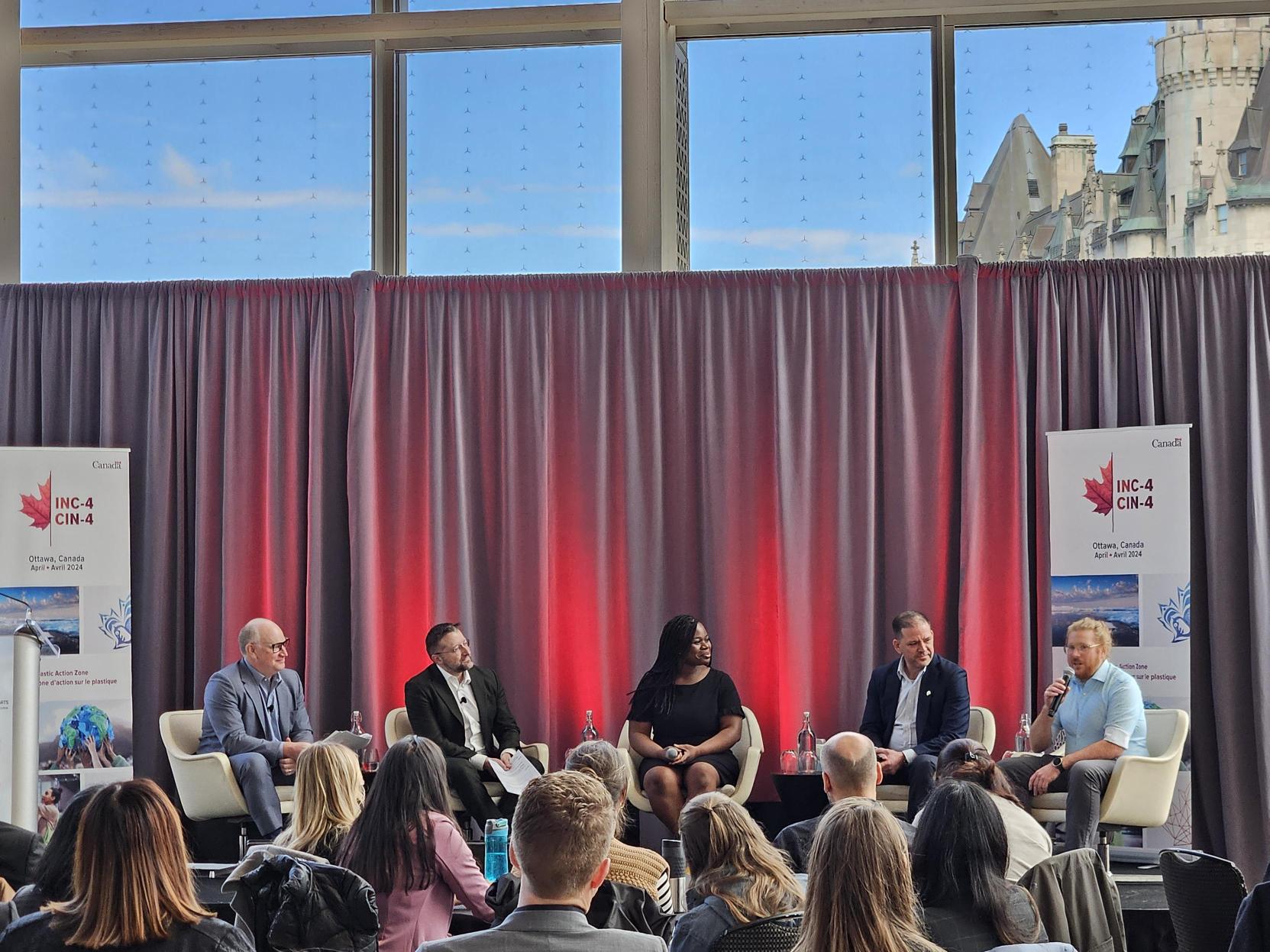On Wednesday, April 24, Circular Materials and Éco Entreprises Québec (ÉEQ) led a producer panel on the role of extended producer responsibility (EPR) in creating a circular economy for plastics in Canada at the fourth Intergovernmental Negotiating Committee’s (INC-4’s) Plastic Action Zone.
Circular Materials and ÉEQ were joined by some of the largest producers to dive into the impact EPR is having across Canada. Loblaw Companies Limited, Keurig Dr. Pepper Canada, McDonald’s Canada, Metro Inc., Nestlé Canada, Restaurant Brands International, Sobeys Inc., Unilever Canada and The Clorox Company of Canada shared valuable insights on how EPR creates recycling efficiencies, harmonization opportunities, influences plastics material design, innovation and supports infrastructure investments.
These discussions helped highlight the recognition of EPR as one of the most effective mechanisms for improving recycling rates.
In addition to the panel, Circular Materials’ CEO, Allen Langdon shared an exciting update on the launch of Circular Materials’ new material access system. This program is a global first, creating a true circular economy for plastics by collecting, recycling and returning plastic materials back to producers to use as recycled content in new packaging and products. Langdon emphasized, “Innovation in extended producer responsibility is pivotal for advancing the circular economy for plastics in Canada. Through collaboration, harmonization and strategic investment, we’re driving the transformation towards the sustainable use of material, aligning with regulatory targets and fostering a circular economy.”
The evolution of EPR has a crucial role in advancing the circular economy for plastics across Canada. As we move forward, Circular Materials is committed to working with industry partners to continue fostering partnerships, promoting harmonization and driving innovation to ensure a sustainable and thriving future for plastic materials in the circular economy.



